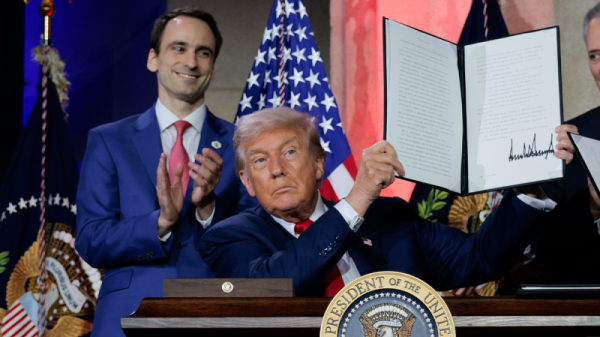The Federal Communications Commission (FCC) Proposes Requiring Robocallers to Disclose When They’re Using AI
The Federal Communications Commission (FCC) has recently proposed a new rule that would require robocallers to disclose to recipients when they are using artificial intelligence (AI) to generate their calls. This proposal comes as a response to the increasing prevalence of robocalls, which have become a major nuisance for many Americans.
Robocalls have been a longstanding issue in the United States, with millions of these automated calls being made every day. Many of these calls are scams or attempts to defraud individuals, leading to financial losses and privacy violations. With advancements in technology, robocallers have become more sophisticated, using AI to create more convincing and targeted calls.
The FCC’s proposal aims to tackle this problem by introducing transparency requirements for robocallers using AI technology. By mandating that these callers disclose when AI is being used to generate calls, recipients will have more information about the nature of the call and can make informed decisions about how to respond.
One of the key reasons for requiring robocallers to disclose their use of AI is to enhance consumer protection. With the increasing sophistication of AI technology, robocallers can create highly realistic and convincing messages that may deceive individuals into providing sensitive information or falling victim to scams. By mandating disclosure, the FCC aims to empower consumers to make more informed choices and avoid potential threats.
Moreover, the proposal can help combat the erosion of trust in communication channels. As robocalls continue to proliferate, many people have become wary of answering unknown calls or engaging with automated messages. Requiring robocallers to disclose their use of AI can help rebuild trust by promoting transparency and accountability in communication practices.
However, the FCC’s proposal also raises some challenges and considerations. For instance, enforcing compliance with disclosure requirements may be difficult, especially for offshore robocallers operating outside the jurisdiction of US regulations. Additionally, there are concerns about potential loopholes or ways for robocallers to evade disclosure rules, which could undermine the effectiveness of the proposed measure.
In conclusion, the FCC’s proposal to require robocallers to disclose when they’re using AI represents a significant step towards addressing the rampant issue of unwanted calls. By promoting transparency, enhancing consumer protection, and rebuilding trust in communication channels, this initiative has the potential to mitigate the negative impacts of robocalls on individuals and society. As the FCC solicits public feedback on the proposal, stakeholders and the general public alike have the opportunity to contribute to the shaping of more secure and reliable communication practices in the digital age.


































